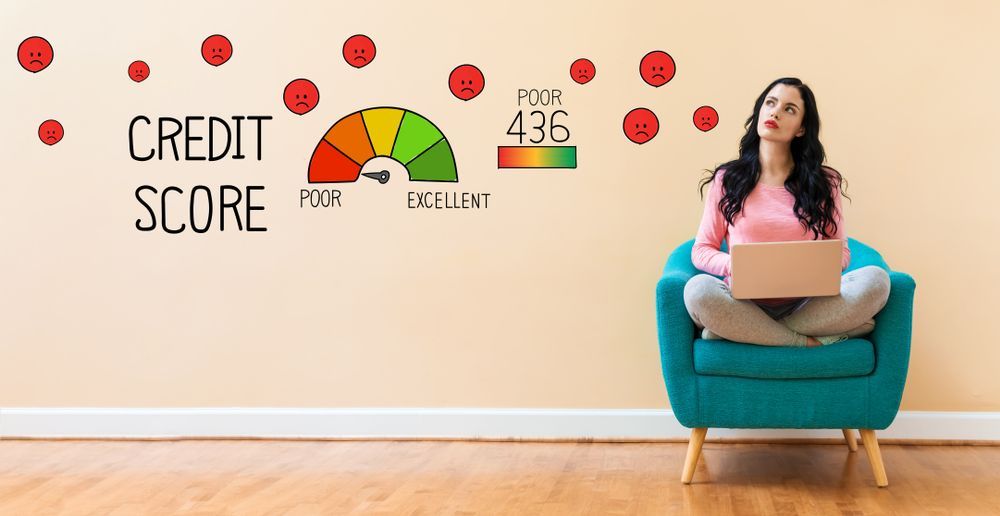Which Entities Are Not Subject to Regulations Under the FCRA?
17 April 2023
Share this article:

The Fair Credit Reporting Act sets limitations on how various business entities can collect and use financial information and other background information about consumers.
Not all provisions of this act apply to all entities in the same way. Some business entities are not subject to all the regulations under the Fair Credit Reporting Act.
What is the Fair Credit Reporting Act (FCRA)?
The FCRA is a part of the Federal Consumer Credit Protection Act. It regulates the use of credit reports to ensure the privacy, accuracy, and fairness of information that is stored, retrieved, and shared about individuals for credit checks and background checks.
The FCRA regulates what information credit bureaus are allowed to collect. It governs who is allowed to see it and under what circumstances. In most cases, consumers must initiate some kind of action or otherwise agree to allow information to be released. Examples of these actions are applying for a loan, for an insurance policy, or for certain licenses issued by the government. Information may also be released to prospective employers, but only if the employer provides a written description of the background check process and receives the consent of the applicant.
The FCRA also gives the consumer the right to see the information and to dispute its accuracy. For job applicants, it requires employers to inform them about the details if a decision not to hire was based on this background information.
Common Fair Credit Reporting Act Violations
For all the emphasis on fair credit reporting, there are still businesses that run afoul of the FCRA. Some of the more common violations are:
- Reporting inaccurate information. Examples include inaccurate account balances, inaccurate payment history, and misreporting a debt as charged off when it was actually settled or paid.
- Reporting outdated information. This would include reporting info over seven years old and failing to report a discharge of bankruptcy.
- Reporting debt as belonging to the wrong consumer. This can happen when there are similar names, SSNs, or other identifying information.
- Failing to act properly on a consumer dispute. Examples include failing to inform a creditor of a dispute, failure to investigate the dispute, and failing to update information when the dispute is resolved.
- Accessing data for an impermissible purpose. This includes an employer ordering a report without the applicant’s permission, a creditor of a closed account pulling a report, or a lender requesting a report before the consumer has applied.
- Failure to give notice. Consumers are entitled to a notice about the use of their credit information.
Which Entities Are Not Subject to Regulations Under the FCRA?
While there are business entities that are not directly subject to full regulation under the FCRA, many of these are covered by other aspects of federal law. Even these entities don’t have a completely free hand when dealing with consumer data.
Background-Screening Companies
These organizations are considered consumer reporting agencies (CRAs) and, as such, must comply with laws that require information to be accurate. They must ensure that the data they provide on creditworthiness, ability to pay, and personal characteristics are correct and up to date.
A larger regulatory burden falls on parties that these companies provide information to, particularly employers. Employers must obtain permission to order reports, inform applicants about the process and provide these applicants with the results. They must also explain any adverse action, such as a decision not to hire, within a reasonable time of the decision. They must give the applicant the opportunity to dispute adverse findings.
CRAs
CRAs, since they provide reports rather than initiate them, do not fall under the regulations that govern how other entities order reports and what they do with them. However, they are required to make their reports available to the public. In most states, the CRA may charge a small fee for the report, but in several other states, they are required to provide the info free of charge.
There’s some dispute over which entities are CRAs and which are not. While the FCRA has a definition, it’s been broadly interpreted to include entities such as tenant screening agencies and criminal background check providers. The government is making an effort to restrict the use of consumer reports by more narrowly defining CRAs.
Credit Card Issuers
Credit card issuers have limited restrictions on the information that they are required to provide to their applicants and cardholders. These issuers are not required to disclose every bit of rate information. For example, they do not have to disclose teaser rates and penalty rates. They are allowed to express their rate as a single APR number. Credit card issuers have broad discretion about which of their terms they choose to disclose.
Credit card issuers may run both pre-screen and post-screen reports for initial credit judgments and final decisions. The pre-screen retrieves a smaller set of information. The issuers may use different CRAs for the two types of reports.
Many credit card issuers provide credit reports as a customer service. However, it’s not generally required.
Credit Unions
Credit unions are often called on to provide information about members to third parties. This can include negative information such as late payments, delinquency, and even insolvency. They must disclose this kind of information in a clear and conspicuous manner within 30 days of providing it to a third party.
Credit unions must notify third parties if one of their members disputes information in their report. If a creditor disputes a report, they must inform the member about it. They are expected to investigate any dispute about their accounts.
Credit unions position themselves in the market as consumer-friendly financial alternatives, so it behooves them to take every measure to deal fairly with their members in credit reporting.
Banks
Because banks often provide financial information to CRAs, the FCRA includes provisions that require banks and other financial institutions to verify the information before delivering it to a reporting agency.
Banks are limited in what they are allowed to share with affiliates. In most cases, they are not permitted to share financial information with third parties without the consumer’s consent.
Banks must be cautious in the use of the reporting information they receive. The Equal Credit Opportunity Act (ECOA) makes it illegal to discriminate against potential borrowers for any cause except their ability to repay. Banks are not allowed to base lending decisions on factors such as race, religion, age, and sex.
It’s critical for CRAs, as well as entities that use their services, to be aware of what they can and cannot do with background checks and consumer data. The regulations are complex, and
state and local regulations add another degree of difficulty.
Eagle Eye Screen Service is your go-to source for accurate and legal public record reporting.
Connect with Us:




